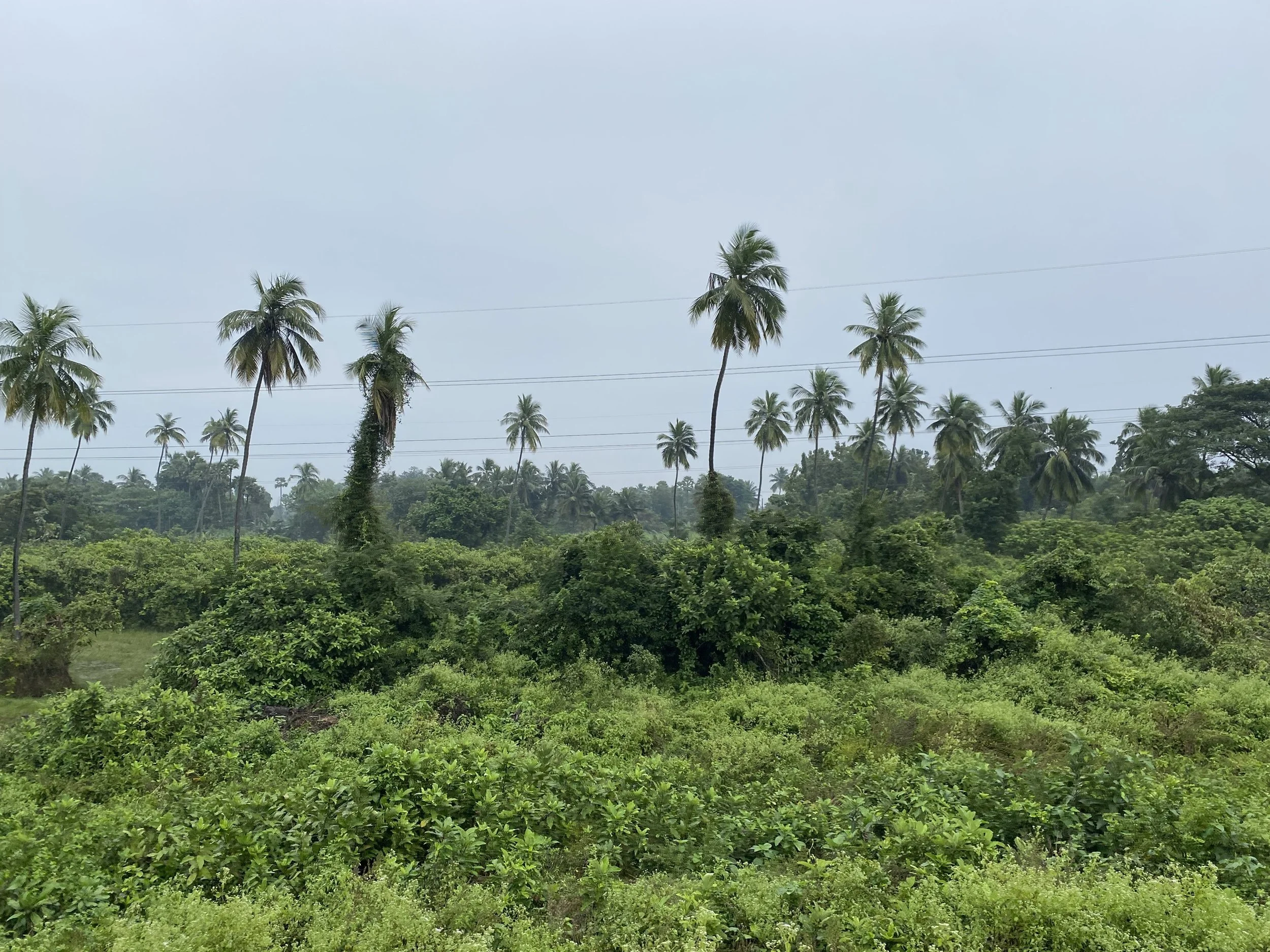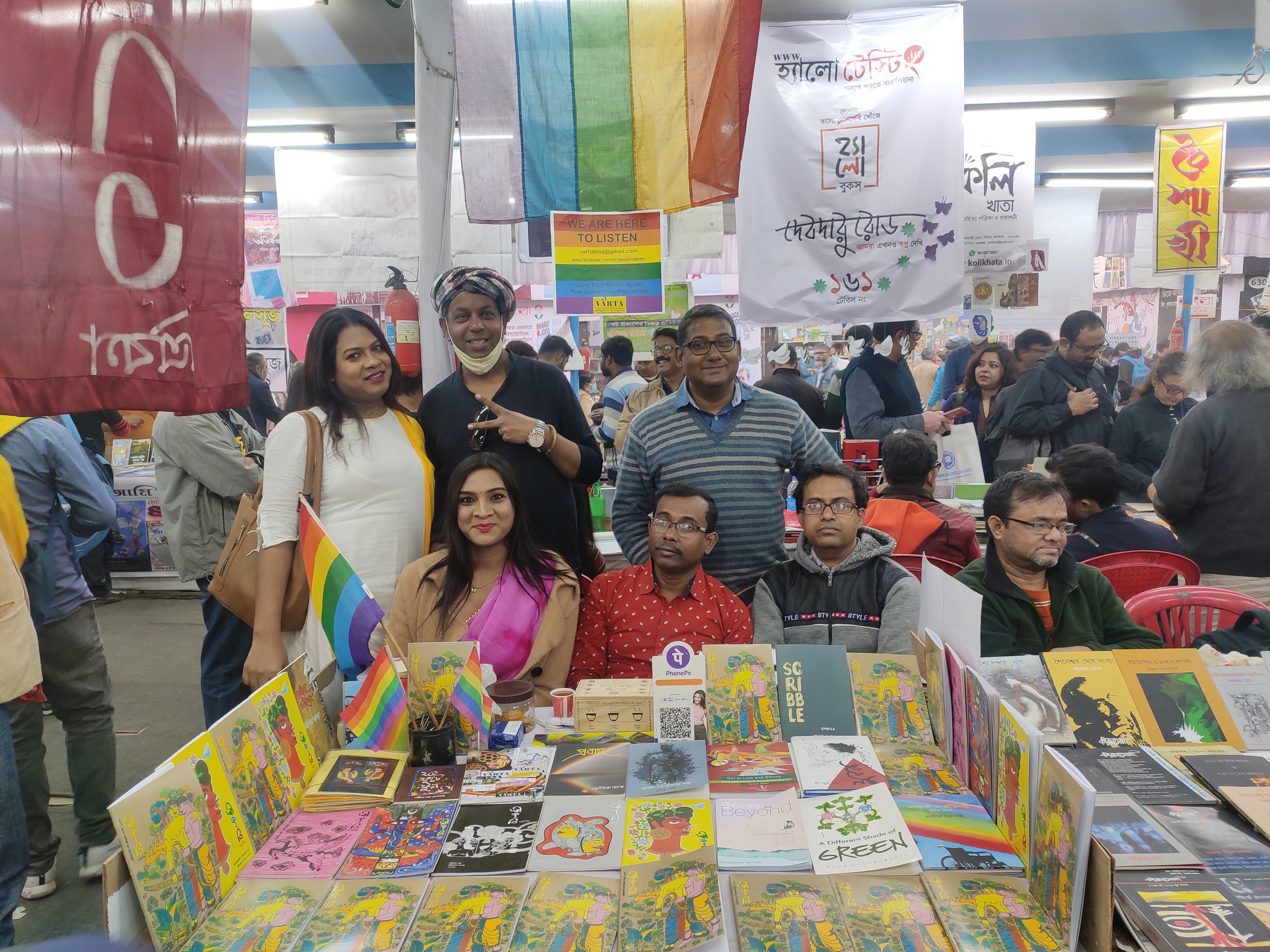Literature
‘Your book felt like the scent of passing months, layered with flowers, rain, spring and autumn—a scent that reached into the city’s deep burrows.’ By Sufia Khatoon
Through intimate details and dialogues, Rachna Singh’s Raghu Rai: Waiting for the Divine invites readers into the expansive vision of the man often hailed as the father of Indian photography. By Neera Kashyap
Poet, author, and translator Snehaprava Das speaks to Mitra Samal about her storytelling process, how translation can enhance creativity, the authors that have inspired her, and more.
Haroon Khalid’s 2024 novel From Waris to Heer (Penguin) is an answer to the refrain of timeless stories—a tale of love and loss, power and rebellion, retold with the lilt of a Sufi melody. By Amritesh Mukherjee
Extract from the work of Mir Taqi Mir: Mir’s poetry abounds in bawdiness, the pain and enjoyment of life, instances of homosexuality, Sufi themes, close and wise observation of the world, and insistence on man’s dignity. Translated by: Shamsur Rahman Faruqi
Ronald Ross was once immortalized in Amitav Ghosh’s historical novel. Nivedita Dey rediscovers a memorial dedicated to Kolkata’s forgotten, Nobel laureate physician.
Set against a backdrop of religious abuse and suffocating intolerance, Sohali Rauf’s Blasphear is a sharp commentary on the ideas of nationhood, and how its intangible forces act as blind shepherds, leading the masses down paths they cannot question. By Amritesh Mukherjee
The ecopoems in Gopal Lahiri’s Anemone Morning delve into a kind of exploratory myth that engages readers with creative potential, stressing that there could be no division between who we are and where we are. By Dustin Pickering
Nishant Injam’s debut story collection The Best Possible Experience (2024) features a cast of characters between India and the United States who are often homesick for another world: a world that could be a physical or a metaphorical distance away, a world they aspire to with the burdens of a life unfulfilled. By Karan Madhok
Prashanth Srivatsa’s The Spice Gate as a spectacular debut fantasy, a feast to the readers who slurp on worldbuilding, while also making them wonder if a freer world is possible. By Akankshya Abismruta
In Aparna Sanyal’s Instruments of Torture, each tale is a deep dive into the abyss of human suffering, portraying characters who are not just victims of their circumstances but also complex individuals grappling with the aftermath of their traumas. By Namrata
In a lengthy conversation, A.M. Gautam, the author of Indian Millennials: Who Are They, Really? (2024), speaks about the many anxieties and opportunities of the Indian millennial, themes of romance, employment, politics, and commerce, and discovering his own self while exploring the larger generation. By Karan Madhok
Vinita Agrawal takes the role of a ‘poetic journalist’ in Eartha, in verses that spark with compassion for all living entities on the planet. By Tansy Troy
The dystopian universe of Varun Thomas Mathew’s The Black Dwarves of the Good Little Bay (2019) is a prophetic chronicling of crisis as a condition of existence, and the contingency of truth as a mode of knowing or bearing witness to crisis. By Paromita Patranobish
“I was chasing this desire to pin down the inexplicable when I wrote Mad Sisters, but acknowledge that it is inexplicable. It sort-of grew in the novel, intwining with the cosmos and the idea of the sublime, and how the interpersonal is the tether that keeps us sane—and perhaps caged.” By Akankshya Abismruta
From Ek Ladki Ko Dekha Toh Aisa Lagaa, Badhai Do, Shubh Mangal Zyada Saavdhan, and more, a fresh lease of life seems to have been granted to a responsible on-screen LGBTQIA+ representation in the glitzy-verse of commercial Bollywood over the past decade. By Nivedita Dey
K. Vaishali won the prestigious Sahitya Akademi Yuva Puraskar this year for her memoir Homeless: Growing Up Lesbian and Dyslexic in India. She speaks about this latest honour, inclusivity in Indian publishing, and the challenges of revealing the sensitive parts of her life to the world. By Namrata
Sanket Mhatre poems in A City Full of Sirens address and interrogate the relations between ‘the eternal’ and ‘the transient’ in a nuanced manner, tearing into the expansive multiplicities of singular moments. By Ankush Banerjee
Published in India’s 75th year of Independence, Converse: Contemporary English Poetry by Indians (2022) presents unique and diverse voices from the diaspora, with poems that are a sustained discussion with history, oneself, the environment, myth, science, and relationships. By Dustin Pickering
In The Solitude of a Shadow, Devibharathi presents a complex picture of a vengeance-seeking narrator fractured by trauma, caste, and identity crisis. By Sneha Pathak
Amitava Kumar’s The Yellow Book: A Traveller's Diary (2023), conceptualizes the journal itself as an art object, where the act of journaling becomes a form of artistic practice. By Pranavi Sharma
Kiriti Sengupta’s Oneness (2024) is a condensed capsule of poetry, one that weaves multiple strains of being into an organic unity. With his vivid and sonic juxtapositions, the compositions in the new collection both obfuscate and enlighten the reader. By Ajanta Paul
In the run-up to the 2024 elections, the films that hit the big screens, the books showcased on the windowfronts, and the music crawling into our ears, has mostly sung the songs of propaganda. It’s art without dissent; art that rages for the machine. By Karan Madhok
Does the reader choose their book? Or the book its reader? Satyarth Pandita explores this grand moment of literary connection and resonance.
Chronicle of An Hour and a Half (2024) establishes Saharu Nusaiba Kannanari as a writer fierce and loyal to his craft, as he invites the readers to reflect on the spectacle of violence in our technologically-powered society. By Akankshya Abismruta
Debut novelist Atharva Pandit discusses why he chose to render the true-crime story as fiction in Hurda, the polyphonic nature of the narrative, and his uninhibited portrayal of the investigation and the actors involved in the case. By Saurabh Sharma
In a wide-ranging conversation with, acclaimed poet and dancer Tishani Doshi spoke to Ronald Tuhin D’Rozario about her literary work, the fundamentals of ‘Vilambit’ in her writing, and artistic journeys through space and time.
In Abhishek Anicca’s memoir The Grammar of my Body (2023), the protagonist is a disabled body, charting its terrain through the unforgiving, able-bodied world. By Priyanka Chakrabarty
Marnina (Avirup) spoke to representatives from Queer organizations at the 2024 Kolkata Book Fair about the experience of hosting their stalls, seeking diversity in Indian publishing, and much more.






























Poetry is a prayerful medium to explore complex, living concepts. Just as fruit falls from the bough to decay within earth and feed the tree, Rajorshi Patranabis’s presents the ritual of cyclical love and devotion in his new collection. By Dustin Pickering